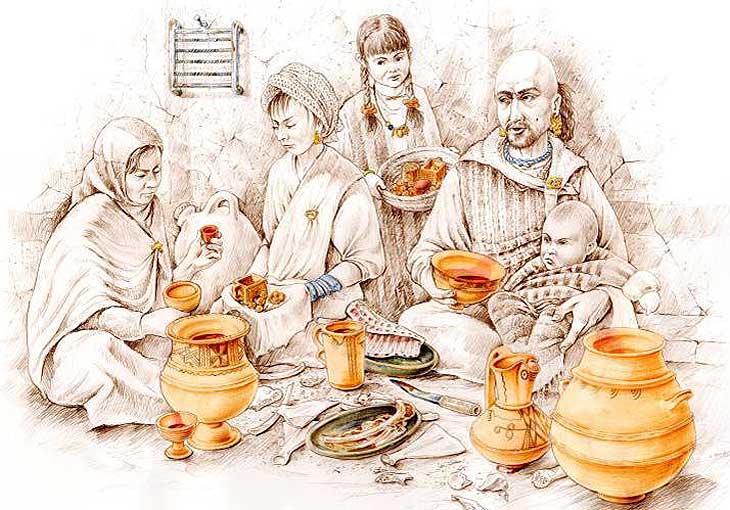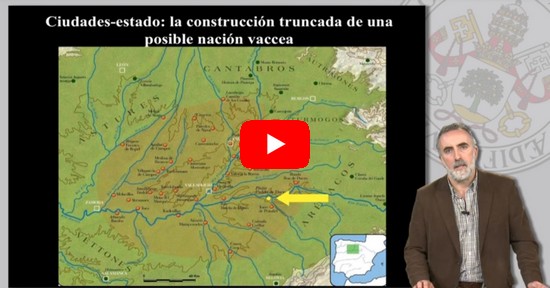
Federico Wattenberg Center for Vaccean Studies (University of Valladolid)
PINTIA VACCEA
The Vaccean people

Monte Bernorio dagger found in tomb 28 of the necropolis of Las Ruedas
The dawn of history in the Castilian plateau
The Iron Age took place between the end of the last Bronze Age culture and the Roman conquest of central Spain. During this time frame that includes almost all of the 1st millennium BC, significant social and economic changes took place, including new urban planning, iron smelting and the use of the potter's wheel. These advances were due to a specific group of people, whose names we know thanks to the Classical sources. The Vacceans was an pre-Roman ethnic group that lived in the central Duero region.

Vaccean home scene (drawing by Luis Pascual Repiso)
Its urban planning, one of the earliest for Spain's non-coastal areas, was a unique pattern, and were some of the first cities in Spanish history that could hold several thousand people. These urban centers were led by a warrior aristocracy, a fact both the archaeology of the site and the Classical sources agree on.
The economy was based on agriculture and livestock, especially grains that were grown in abundance for both consumption and for sale or trade for natural resources lacking in this area, primarily metals and hard stone.
Vaccean beliefs included a strong sensitivity toward death and Classical sources speak of these rituals linked to the Celtic world.
The Vaccean mark on this territory after 20 generations, during the last four centuries B.C., is indisputable (adobe architecture, grain-based agriculture, wine production, for example).
A large part of the Vaccean lifestyle has been handed down to the modern inhabitants of this region.
Maybe you're interested...






